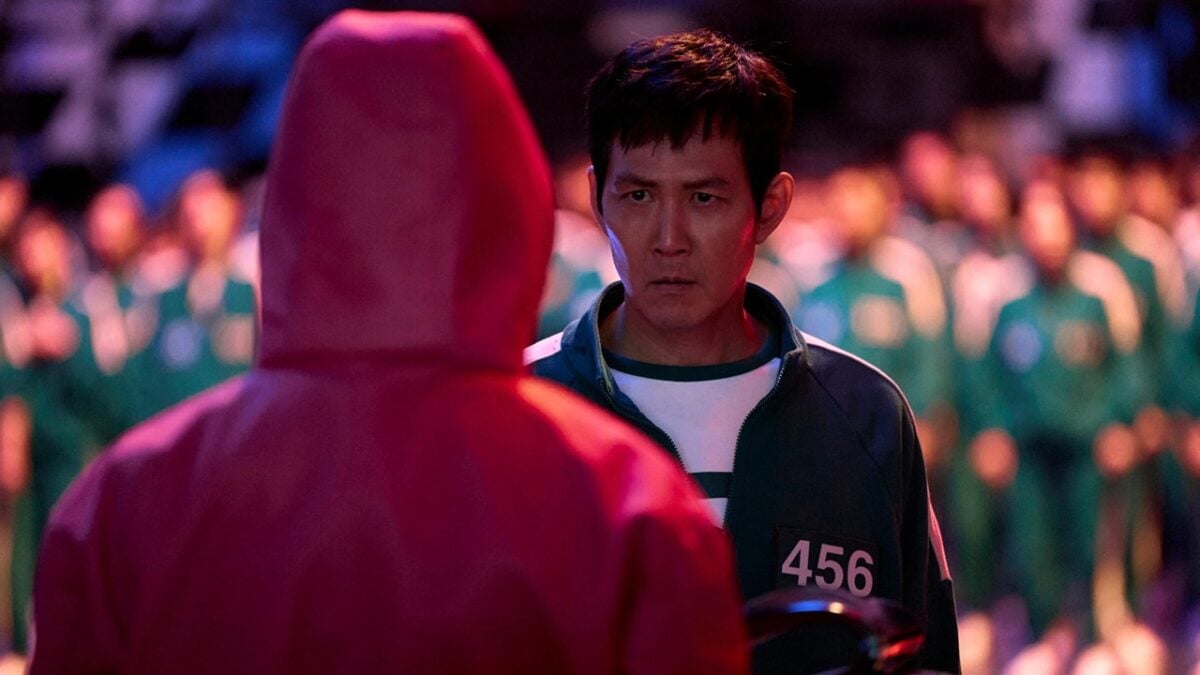Squid Game Histoire Vraie: Is the hit Netflix show a reflection of harsh realities in South Korea and beyond? This exploration delves into the socio-economic conditions that might have inspired the show’s brutal games, examining the prevalence of crippling debt and the desperation it breeds. We’ll compare the fictional games to real-life examples of exploitative competitions and analyze the ethical dilemmas they present.
Get ready for a look at the dark side of survival.
We’ll uncover the unsettling parallels between the show’s fictional world and the very real struggles faced by many. From the crushing weight of debt to the allure of high-stakes competitions promising a way out, we’ll examine the psychological and ethical implications of such situations. We’ll also explore how popular culture reflects and perhaps even shapes our understanding of these issues, and how this show resonates with similar themes in other media.
South Korean Socioeconomic Realities Mirrored in Squid Game
The global success of Squid Game highlighted the stark realities of economic inequality and the desperation it breeds. While a fictional drama, the series reflects anxieties about debt, competition, and survival prevalent in South Korea and other parts of the world. This exploration delves into the socio-economic conditions that resonate with the show’s themes, examining the cultural context, ethical dilemmas, and visual representations of poverty and desperation.
South Korean Debt and Economic Inequality, Squid game histoire vraie
South Korea’s economic miracle has been accompanied by significant income disparity. A highly competitive education system and a rigid social hierarchy contribute to intense pressure to succeed, often leading to crippling debt. Many South Koreans are burdened by high-interest loans, particularly those from unregulated lenders, creating a cycle of debt that is difficult to escape. This vulnerability is particularly acute for young people facing job insecurity and the rising cost of living.
The pressure to maintain appearances, even in the face of financial hardship, further exacerbates the problem. This intense pressure to succeed, coupled with the social stigma associated with debt, mirrors the desperation depicted in Squid Game.
Real-Life High-Stakes Competitions
While the games in Squid Game are fictional, the concept of high-stakes competitions for survival or financial gain exists in various forms globally. Reality television shows featuring intense challenges and elimination often mirror the competitive, high-pressure environment of the series. Furthermore, certain employment practices, especially in developing countries, can involve exploitative conditions that resemble the life-or-death scenarios portrayed in the show.
So you’re curious about “Squid Game histoire vraie”? While the show’s fictional, the harsh realities of debt and societal inequality it depicts are sadly real. Think about the sheer scale of those games – a spectacular, albeit terrifying, display. It reminds me of the incredible visual spectacle of the shanghai drone show , a completely different kind of breathtaking performance, but equally impactful in its visual storytelling.
Ultimately, both highlight the power of visual displays to convey powerful messages, albeit with vastly different contexts. The themes of “Squid Game histoire vraie” remain chillingly relevant.
The desperation of participants in these situations, driven by economic necessity, directly connects to the motivations of the players in Squid Game.
Historical Context of Economic Crises
South Korea’s history includes periods of significant economic hardship, including the 1997-98 Asian financial crisis. These crises had a profound impact on societal structures, widening the gap between the rich and the poor. The legacy of these economic downturns continues to shape the country’s socio-economic landscape and contributes to the anxieties explored in Squid Game. The vulnerability of individuals and families in the face of economic shocks forms a crucial backdrop for understanding the show’s themes.
Exploitation and Survival Games in Popular Culture
The themes explored in Squid Game are not unique. Similar narratives of exploitation and desperation have appeared in various forms of media throughout history. This section examines the recurring motifs of desperation, competition, and the moral compromises made under pressure, comparing Squid Game to other examples in popular culture and real-life scenarios.
Comparisons with Other Media
Squid Game shares thematic similarities with numerous works of fiction, including the dystopian Hunger Games series, Battle Royale, and even classic stories about gladiatorial combat. These narratives explore the dehumanizing effects of extreme competition and the moral compromises individuals make to survive. The recurring themes of power imbalances, systemic exploitation, and the erosion of human dignity are central to all these stories.
Real-Life Instances of Exploitation
While not as extreme as the fictional games in Squid Game, real-life examples of exploitation exist, particularly in the context of sweatshops, human trafficking, and predatory lending practices. These situations highlight the vulnerability of individuals forced into desperate circumstances, where survival necessitates compromising their values or dignity. These real-world parallels reinforce the unsettling realism of Squid Game‘s depiction of desperation.
Psychological Impact of High-Stakes Situations
Participating in high-stakes survival situations, whether fictional or real, has profound psychological consequences. The intense pressure, fear of failure, and the potential for violence can lead to trauma, moral compromise, and lasting psychological damage. The psychological toll on the players in Squid Game serves as a stark reminder of the human cost of extreme competition and desperation.
Ethical Implications of Squid Game’s Themes
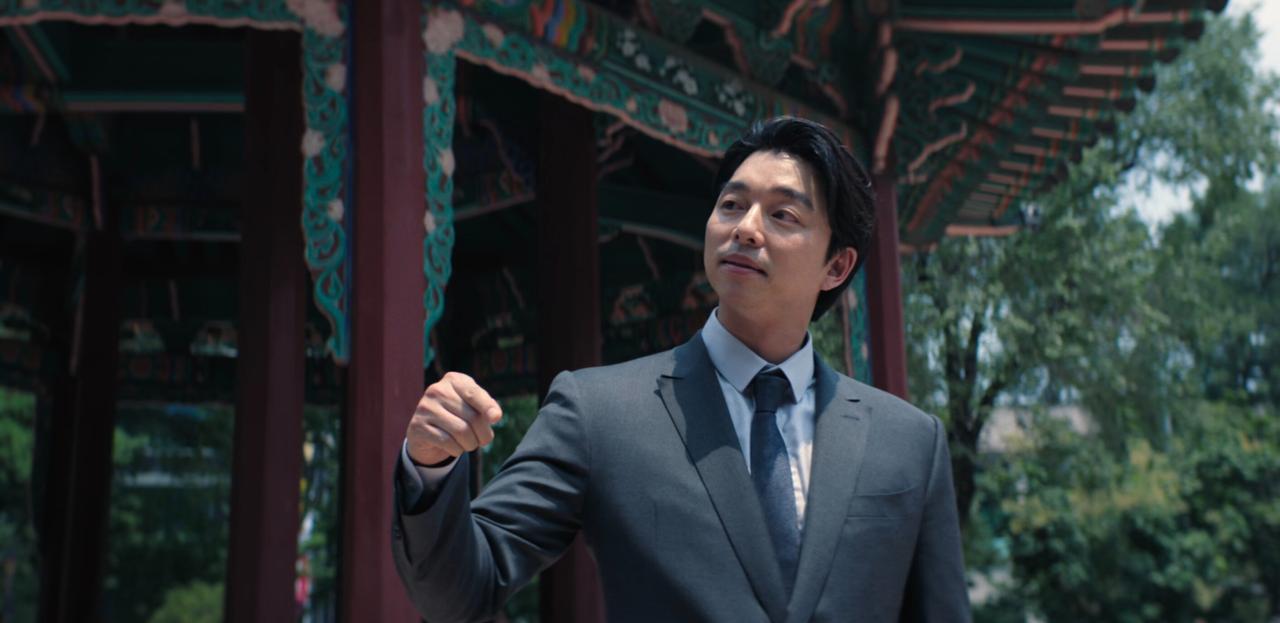
The ethical dilemmas presented in Squid Game are complex and multifaceted. This section examines the moral choices faced by both the organizers and the players, exploring the justifications for their actions and the broader ethical implications of the show’s themes.
Ethical Dilemmas Faced by Characters
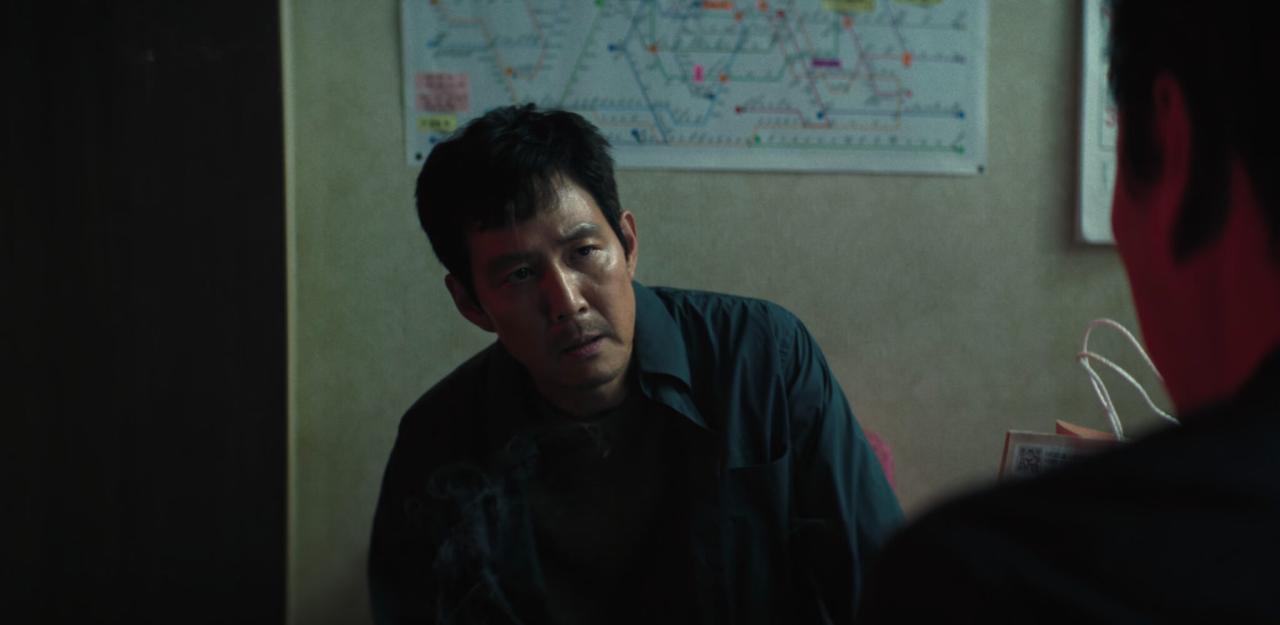
The characters in Squid Game are forced to confront difficult ethical choices under immense pressure. Their decisions reflect the conflict between survival and morality, highlighting the complexities of human behavior in extreme circumstances. The game organizers, motivated by profit or a twisted sense of social commentary, also face ethical questions regarding their actions. The show forces viewers to confront their own moral boundaries and consider how they might act under similar pressure.
Moral Compromises Under Pressure
The show powerfully illustrates how extreme pressure can lead individuals to compromise their moral values. The desperation of the players often pushes them to make choices they would normally consider unacceptable. This exploration of moral flexibility under duress raises critical questions about human nature and the limits of ethical behavior. The ethical implications of these compromises extend beyond the fictional world of Squid Game, offering valuable insights into real-world situations involving moral ambiguity.
Hypothetical Scenario: Debt Relief Survival Game
Imagine a scenario where a survival game, similar to Squid Game, is designed specifically for debt relief. Participants voluntarily enter, with the prize being the complete erasure of their debts. This hypothetical scenario allows for an exploration of the ethical considerations involved in such a system. Would it be justifiable? What safeguards would be necessary to prevent exploitation and coercion?
So you’re wondering about “squid game histoire vraie,” right? It’s a common question, as the show’s brutal games feel intense. To get a clearer picture of whether there’s any truth to the claims, check out this article: squid game histoire vraie. It delves into the real-life inspirations and separates fact from fiction surrounding the “squid game histoire vraie” debate.
Ultimately, understanding the show’s roots helps appreciate its impact.
This thought experiment highlights the complex ethical challenges presented by the show’s central premise.
Comparison of Moral Frameworks
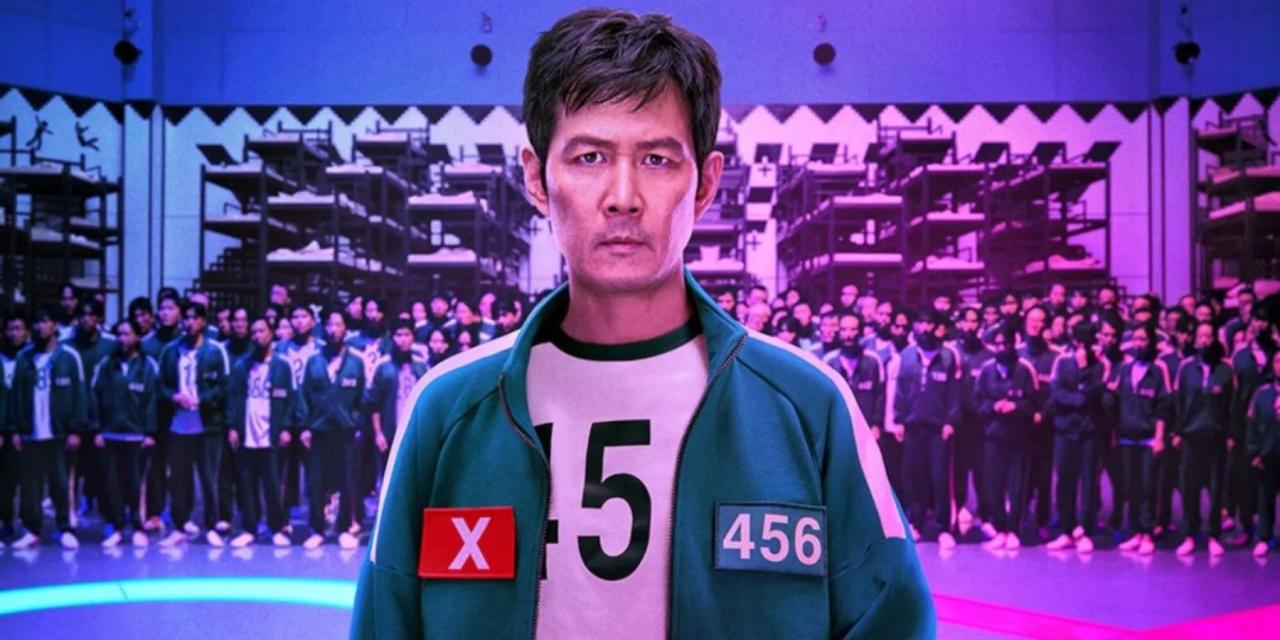
The show presents contrasting moral frameworks: the ruthless pragmatism of the game organizers versus the desperate pragmatism of the players. By comparing these perspectives, we can gain a deeper understanding of the moral ambiguities inherent in the show’s premise and its relevance to real-world issues of economic inequality and exploitation. This comparison encourages a critical examination of the justifications used to legitimize both sides’ actions, highlighting the grey areas of ethical decision-making under extreme pressure.
Visual Representation of Squid Game’s Themes
| Aspect | Squid Game | Real-World Example | Analysis of Similarities/Differences |
|---|---|---|---|
| Desperation | Players risking their lives for a chance at financial freedom. | Individuals working in exploitative labor conditions due to lack of alternatives. | Both depict a similar level of desperation driven by economic necessity, though the fictional game is far more extreme. |
| Competition | Intense competition between players, leading to betrayal and violence. | Cutthroat competition in the job market, especially in highly competitive industries. | Both illustrate the ruthless nature of competition, but the consequences are far more severe in the game. |
| Violence | Graphic violence and death as part of the game’s mechanics. | Violence in impoverished communities due to social unrest and lack of resources. | While the scale and context differ, both highlight the link between desperation and violence. |
| Consequences | Life-or-death consequences for players. | Severe financial consequences for individuals unable to repay debts, including homelessness and social exclusion. | The consequences are dramatically different in scale, but both illustrate the high stakes involved in financial struggle. |
| Morality | Players forced to make difficult moral compromises to survive. | Ethical dilemmas faced by individuals working in morally questionable industries due to economic pressure. | Both highlight the conflict between survival and morality, with the game pushing this conflict to an extreme. |
Illustrative Descriptions: Depicting the Visuals
The visual language of Squid Game powerfully conveys its themes. The stark contrast between opulence and poverty, the grim settings of the games, and the players’ worn clothing all contribute to the show’s impact.
Poverty and Desperation in a South Korean Urban Setting
Imagine a cramped, dimly lit apartment building in a densely populated South Korean city. The walls are stained and peeling, the air thick with the smell of cheap instant noodles and dampness. The residents, dressed in worn-out clothes, huddle together in the shared spaces, their faces etched with weariness and desperation. The overall atmosphere is one of quiet desperation and a sense of hopelessness.
The architecture is functional, lacking any ornamentation, reflecting the economic struggles of its inhabitants. The clothes are simple, practical, and often patched, a clear indication of their financial constraints.
A High-Stakes Game Scene
The tension is palpable. Hundreds of players stand on a vast, brightly colored playing field, their faces a mixture of fear, determination, and desperation. The sun beats down mercilessly, adding to the physical exertion and mental strain. Sweat beads on their brows as they anxiously await the signal to begin. The air crackles with anticipation, punctuated by the nervous whispers and ragged breaths of the participants.
So, you’re curious about “Squid Game histoire vraie”? While the show’s fictional, the desperation it portrays is sadly real for many. Think about the scale of that desperation – imagine a spectacle like the shanghai drone show 2029 , but instead of light, it’s human lives at stake. That’s the chilling undercurrent of “Squid Game histoire vraie”—the stark contrast between extravagant displays and the harsh realities of poverty and inequality.
The vibrant colors of the game contrast sharply with the grim determination on their faces, highlighting the stark juxtaposition of childlike games and life-or-death stakes.
Opulence and Poverty: A Stark Contrast
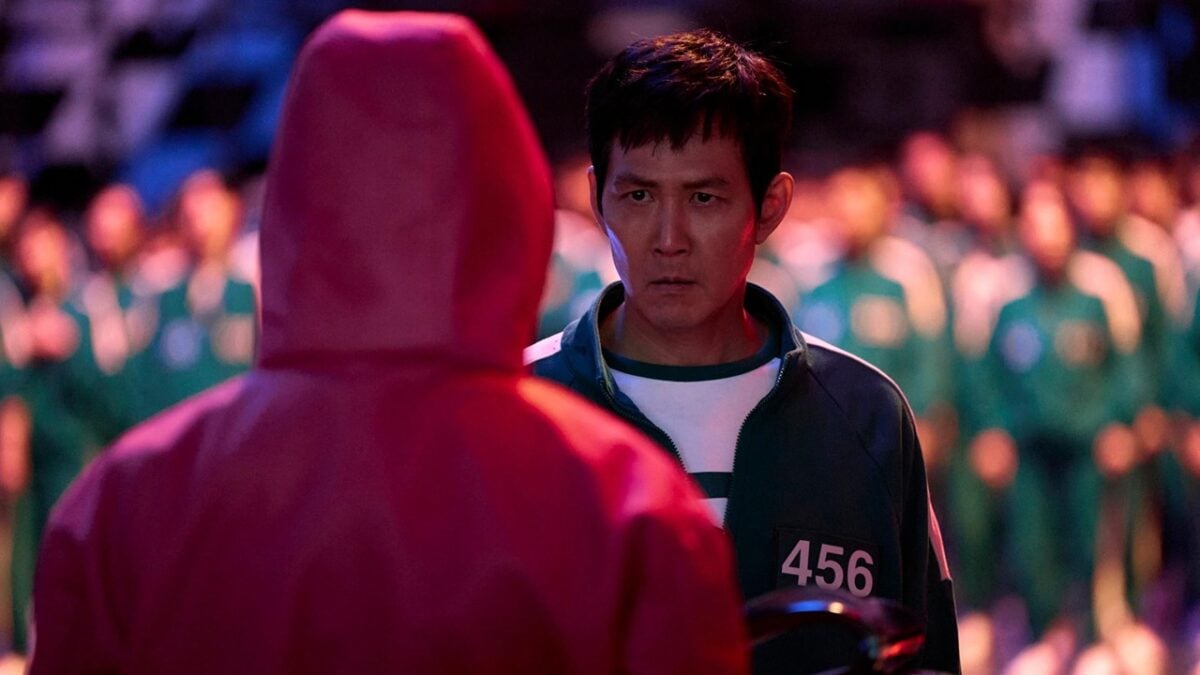
The show visually contrasts the opulent lifestyle of the game organizers with the stark poverty of the players. The organizers reside in lavish, modern villas, surrounded by luxury and comfort. Their clothing is impeccably tailored, their demeanor relaxed and assured. This stark contrast underscores the vast economic disparity that fuels the game and serves as a visual representation of the social inequalities the show critiques.
The visual juxtaposition emphasizes the chasm between the privileged elite and the desperate masses, highlighting the systematic exploitation at the heart of the game’s premise.
Wrap-Up: Squid Game Histoire Vraie
Ultimately, “Squid Game Histoire Vraie” reveals a disturbing truth: the show’s exaggerated violence and high-stakes games are a stark, albeit fictionalized, reflection of real-world struggles. While the games themselves are fictional, the desperation, inequality, and ethical compromises depicted are tragically relatable. The show serves as a powerful commentary on societal issues, prompting crucial conversations about economic disparity, exploitation, and the lengths people will go to survive.
Let’s continue to critically examine these issues and strive for a more equitable future.
User Queries
What inspired the creation of Squid Game?
While fictional, the show draws inspiration from various sources, including South Korea’s socio-economic landscape and existing narratives about high-stakes competitions and survival games.
Are there any real-life equivalents to the Squid Game’s deadly competitions?
While not exactly mirroring the show’s brutality, various real-life situations, such as exploitative labor practices or dangerous survival challenges for financial gain, share thematic similarities.
How accurate is the show’s portrayal of South Korean society?
The show exaggerates certain aspects for dramatic effect, but it touches upon real issues of debt, inequality, and societal pressure within South Korea.
What are the ethical implications of the show’s themes?
The show raises ethical questions about exploitation, the morality of survival, and the responsibilities of both those in power and those desperate enough to participate in such games.
